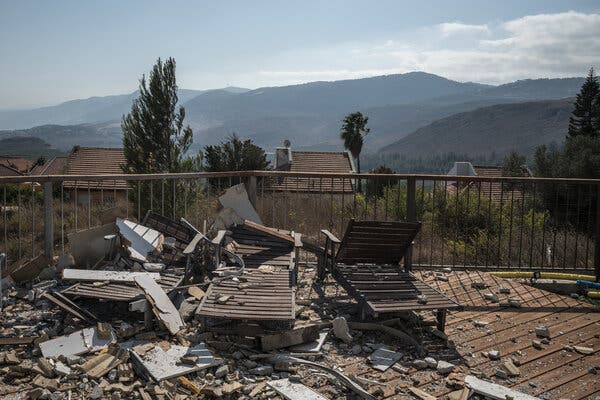A focus on mutual deterrence had kept intermittent clashes along the Lebanon-Israel border from spiraling into a major war. That equation changed this past week.

For the second time in less than two months, Israel located and killed one of Hezbollah’s most senior and secretive military figures as he held a covert meeting with his comrades near Beirut. And in the days before his death, Israel incapacitated hundreds, if not thousands, of the group’s rank-and-file members by blowing up their pagers and walkie-talkies.
Hezbollah’s response so far: calls for vengeance and routine rocket fire into northern Israel.
The assassination of the senior military leader, Ibrahim Aqeel, on Friday capped a week that threw Lebanon’s most sophisticated political and military force into deep disarray and appeared to hail a stark shift in the calculations that had long governed the decades-old conflict between Israel and Hezbollah.
Since the two forces effectively fought each other to a standstill in a hugely destructive war in 2006, Israel and Hezbollah have been arming up and preparing for the next major confrontation, feeding a situation of mutual deterrence that kept intermittent clashes along the Lebanon-Israel border from spiraling into another big war.
Israelis feared that a new conflict could include Hezbollah’s targeting sensitive infrastructure inside Israel and well-trained Hezbollah commandos rampaging though Israeli communities. Hezbollah knew that Israel’s air force could swiftly cause extensive destruction in Lebanon, especially in the communities from which the group draws its support.
This past week, however, Israel’s leaders decided that pushing past that equation was worth the risk and crossed what had been unofficially considered red lines. So far, it appears to have worked.
“Eighteen years of mutual deterrence has now given way to a new phase of one-sided superiority on the part of Israel,” said Lina Khatib, an associate fellow at Chatham House, a London-based research organization. “The facade that Hezbollah had been presenting to the world of it being an impenetrable organization is shattered, and Israel has displayed with flair how much of an upper hand it has in this equation vis-à-vis Hezbollah.”



